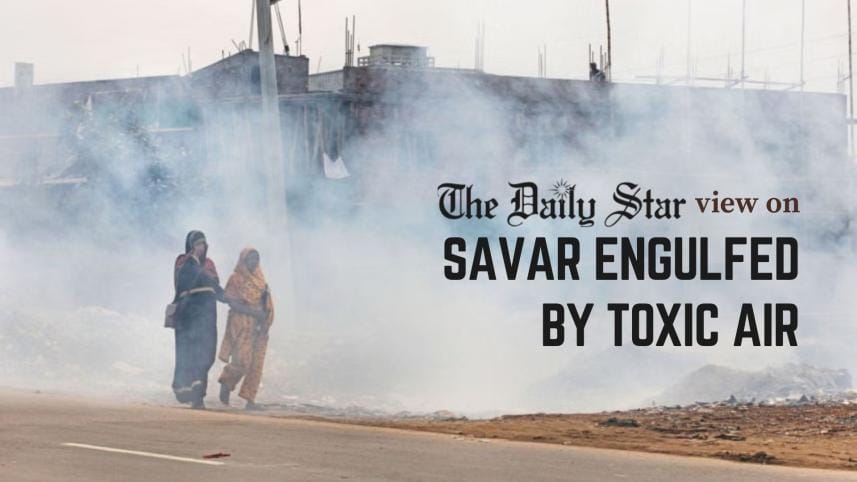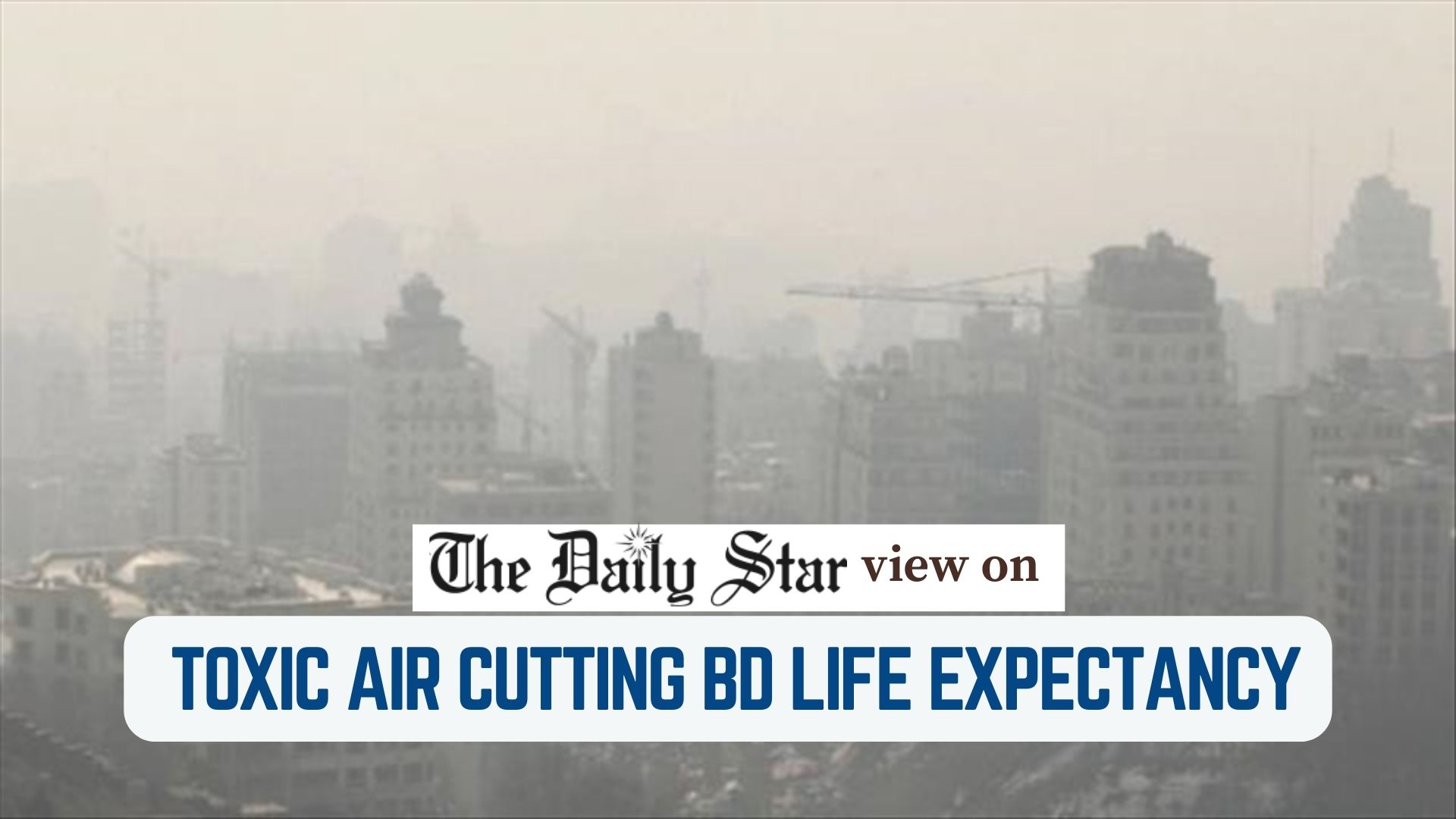Save Savar from toxic air

We cannot stress enough the urgency of tackling the worsening air pollution in Dhaka's Savar. On August 17, the Department of Environment (DoE) declared the upazila a "degraded airshed," citing persistently hazardous air caused by open burning of solid and hazardous waste as well as brick kilns. The DoE also issued a circular banning brick burning in all but Tunnel Kilns and Hybrid Hoffman Kilns, and prohibiting open waste-burning. The ban came into effect on September 1, yet, while kiln operations remain paused due to the rainy season, the open-air burning of tyres, batteries, wood, and even chromium-containing tannery waste continues unabated, according to a report in this daily. Such practices are destroying soil fertility, reducing crop yields, and making life unbearable for the locals. During the dry season, northwestern winds carry these pollutants into Dhaka, aggravating the city dwellers' health risks.
This scenario reflects a pattern we have seen before. The tanneries were moved from Hazaribagh to the Tk 1,015-crore Savar Tannery Industrial Estate to save the Buriganga River. However, the Central Effluent Treatment Plant (CETP) installed there cannot fully treat the waste it receives. As a result, pollution continues. Additionally, most tanneries still flout basic labour and safety standards. On the other hand, in February, the High Court ordered removal of the brick kilns, responsible for an estimated 58 percent of Dhaka's air pollution, if illegal, but many owners failed to submit documents by the March 1 deadline. The DoE's new circular, therefore, means little if the rules to protect the environment are not effectively enforced.
Locals in Savar have demanded stricter monitoring and closure of establishments burning tyres, batteries, and hides. Experts, too, have stressed that unplanned industrial development, poor waste management and unchecked kiln operations together have created a toxic mix. Unless these sectors are brought under firm, transparent regulation, shifting locations or issuing bans will only displace—not resolve—the problem. To ensure real change, the government must publish and implement its action plan with clear deadlines. The CETP must be upgraded and the tanneries must be held accountable for compliance with environmental and labour standards. Illegal kilns must be shut down promptly, a mechanism to track and penalise open waste-burning must be put in place. Without such sustained measures, Savar's "degraded airshed" will continue to be a daily threat to public health, livelihoods, and the environment.



 For all latest news, follow The Daily Star's Google News channel.
For all latest news, follow The Daily Star's Google News channel. 

Comments